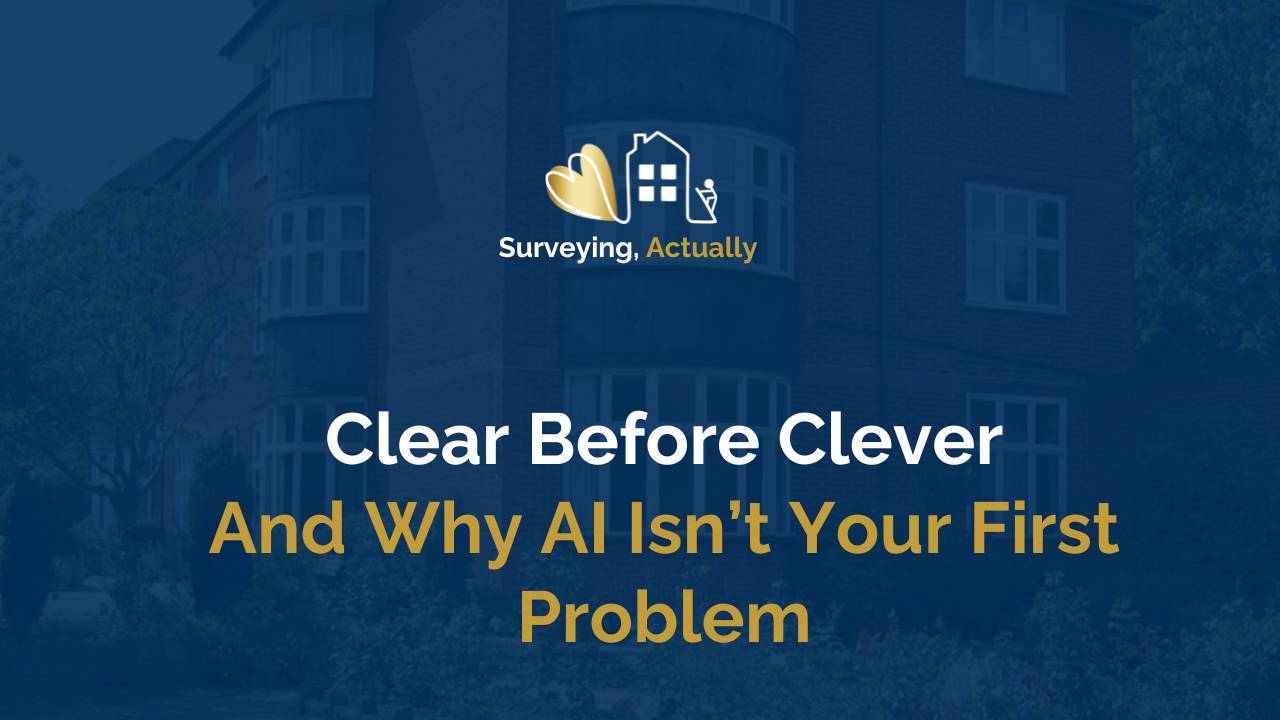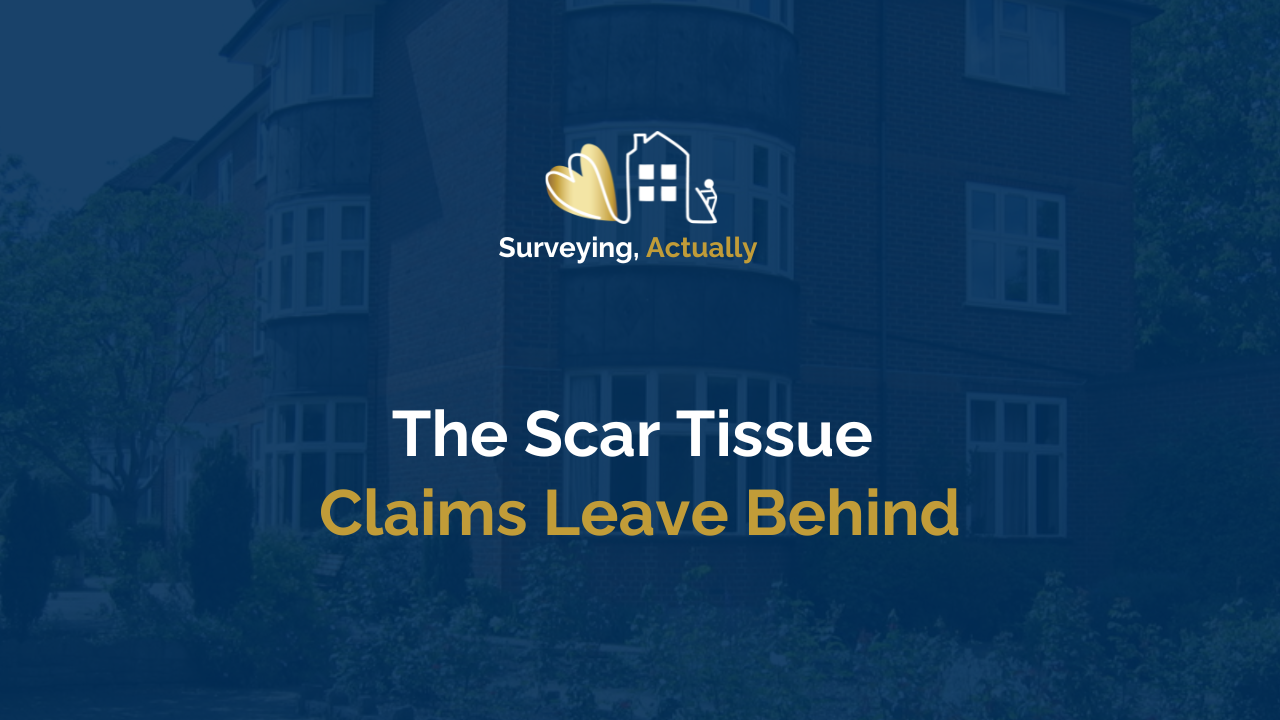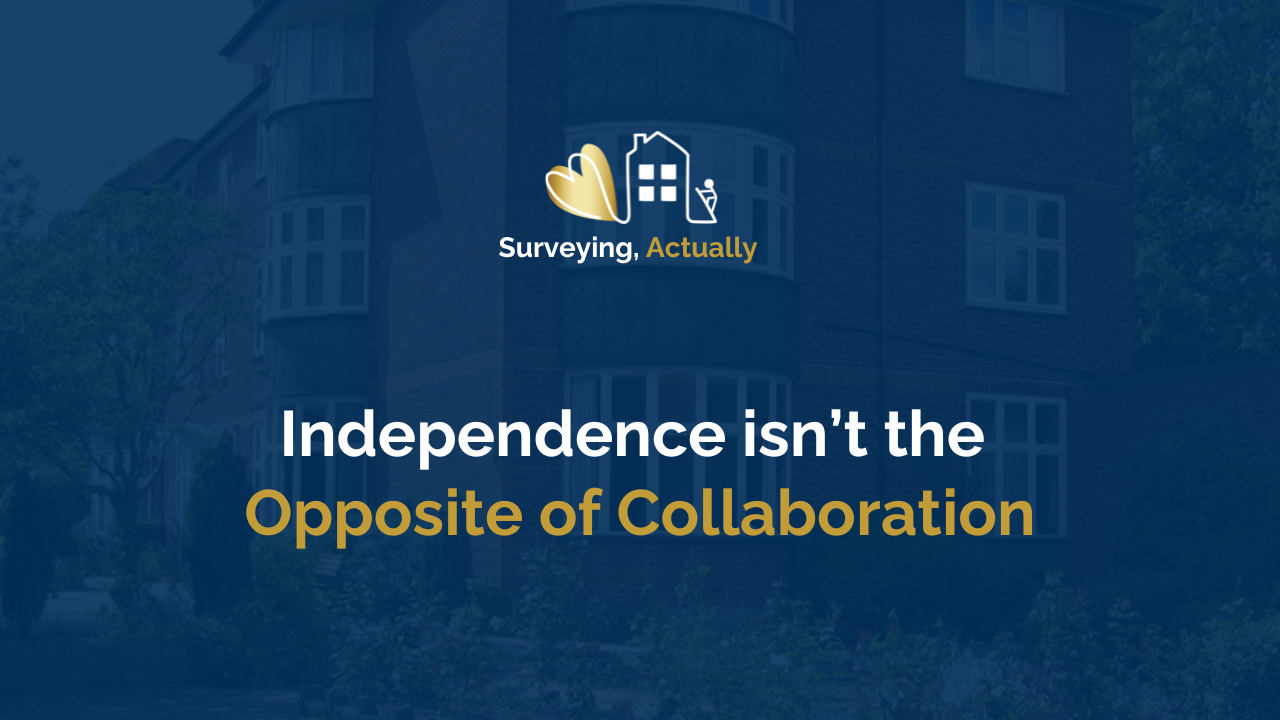How To Choose Professional Indemnity Insurance for Surveyors
Nov 21, 2023
One of The Surveyor Hub's most popular questions is recommendations for Professional Indemnity Insurance Brokers. And in truth, there is never a straightforward answer or one standout recommendation because it just depends.
Every surveyor and surveying business is different from the range of work we do, our appetite for risk and our relationship with our broker - and the person you speak to makes all the difference - if they leave, we can often be left high and dry. The same goes for when there is a problem - who do you speak to, and who will handle any claim? Do the promises of support live up to the hype?
Questions to ask your Broker
What essential documents do I need to read about professional indemnity insurance (PII)?
A wealth of information is available on the internet and via various professional membership bodies. However, the go-to place for resources is RICS' own Professional Indemnity section. It is the most useful and comprehensive. So, take a look and save the page, as anything on the RICS website is hard to find. RICS also provide resources on current market trends and the state and health of the PI market, reviews and consultations, Minimum PI wording, Excess details and cover considerations, Listed Insurers, Risk Management guidance etc. You should be aware of this, but so should your Broker; it is a red flag if they are not and equivalent to a London cabbie having 'the knowledge'.
Do I need a broker who can source an RICS-approved insurer?
If you are an RICS member, you must have RICS-compliant insurance; this is because some insurers do not provide the level of coverage which adequately protects the public, and you will be in breach of your regulations if you do not have this in place. You can find a list of approved insurers here, and what the RICS calls a list of ‘experienced’ but not endorsed brokers here. You can find out more about RICS insurance here.
Can I shop around for my Insurance?
Brokers will tell you no, but yes, you can. You need to clarify which insurer the broker will use for a quote and pick one that uses a different insurer. When shopping for insurance, you are also choosing a broker - the relationship is important, so don’t just shop for the quote but also the service.
What experience do you have with …
You want to work with a Broker who understands you and your business, so make sure you are using a Broker who understands the nature of your work. They will then be able to explain it better to the insurer. For example - condition survey and valuation-only businesses have different needs. Small businesses need a different level of support if there is a problem, as do new start-up companies and firms looking to exit the market in the next 5-10 years. You will want a Broker who understands run-off cover and the options open to you.
What would you like to know about my business and background, and in what format?
It is very easy to make assumptions about a surveying business, but in my experience, they are not all the same. From a Broker and insurer's point of view, they just want to understand the risks so they can calculate a premium. As a surveying business, you are more than a cash cow, so find a Broker who values what you do, understands the risks you take and cares about you and your business enough to have frank conversations with you.
What is your role as a Broker to the insurer, and how much do I pay you?
A Broker will help you get the insurance coverage you need, but they do get paid, so just like a Broker arranging your mortgage, they should present you with the details of what they are getting paid for transparency. You deserve transparency and value for money, and if the Broker fee is paid separately, you may be able to navigate the Insurance Premium Tax (IPT).
Do you offer policies longer than 12 months?
Every insurer is different; some do, some don't. The benefit is generally only realised when it's a soft market - that is, lots of competition and lower rates, so you may be able to get an 18-month policy. If you do, remember to keep track of your renewal date so you don't miss them to ensure you are covered, and as ever, check it is the right deal for your business and not a deal to meet the Broker's targets.
Can I purchase a run-off cover in one go?
When you exit a business as an RICS member, you need at least 6 years of run-off cover - it's also known as a sleep-easy solution. As far as we know, almost all Insurers now insist on an annual review to consider any claims or circumstances notified, current market conditions, run-off discounts and the insurer's underwriting strategy, which could change.
Do you have a documented process I can have so I know what to do if I receive a claim?
Some will say, ‘It’s ok, just give us a call if there is a problem’, but that is not good enough, and as a paying client, you need to understand exactly what happens when there is a problem. I recently spoke with a surveyor who, after 10 weeks, was waiting for a response from his Broker/Insurer on how to respond to a £10,000 asbestos claim within his excess. That was 8 weeks of two homeowners waiting as it was a house purchase chain and many sleepless nights for a surveyor. There was no accountability, or it seemed any urgency. A documented process clarifies what will happen and when so you can manage the situation.
What other services do you offer?
As well as professional indemnity insurance, you will need public liability and employee liability if you have employees. The Broker should be knowledgeable in understanding what you need, and you may get a good offer for more than one product purchased with them.
Do you offer a health check to help me discover high-risk areas in my business?
Not every Broker does, but it is worth asking. Understanding your risk can help you navigate premiums - less risk means lower PII fees. Asking this question will give you a sense of how they approach and value you as a client and your work. Some include a health check visit to your offices. Either way, you should be working together to understand your risk and demonstrate that the risks you take during your work are calculated.
Can you explain to me what excess and maximum level of cover?
You may know this already, but listening to how it is explained and described to you as a client is always good. When paying out, hidden caveats and requirements can leave you with a significant bill if you are not fully clear on your responsibilities. Surveyors often ask how much cover is needed, but it all depends on the company turnover, the mix and range of work, and, like any other insurance, your appetite to risk being covered for loss of documents, ombudsman awards, asbestos claims, etc. if you thought about it too much you wouldn't do any work, and you cover would be huge. So itis important that you are very clear on - the work you do and why, the source of the work and the risks involved and have all of this set out together with your business numbers so you can have a good discussion wth your Broker.
How is the cover calculated, and when will it increase?
You are unlikely to get a straight answer, but they should be able to explain to you that the more work you do, and in turn, the more risk you take, the higher your premium will be. This is why it is also important to understand what you need to do to mitigate your risk. And a note to businesses in the first year - it will go up in year two, and that could be a shock to the system - like your tax, make sure you put money aside for it.
What are the payment terms?
Some Brokers will allow you to pay monthly and spread the cost, but there may be an additional fee for doing so. Similarly, a bit like a mortgage, you may get a better deal for paying for longer-term cover. Some offer, for example, a six-year run-off cover, which can be paid in one payment if you close your business, but not all, so do check.
What exclusions are there?
The small print can make all the difference to your PII and the work you do, for example, asbestos and fire risks post-Grenfell. Too many exclusions can reduce the amount you pay and the amount of coverage you have, making it ultimately worthless.
What do you need to know about sub-consultants in my business?
The RICS Minimum PI Wording (which all participating – or Listed – Insurers have to replicate and offer) defines “Consultant” in Section H, Clause 7, and then also confirms cover operates within the definition of Insured in Clause 14. Usually, an Insurer will ask whether consultants are utilised within the annual proposal or declaration form and then will note them on their internal records. It's rare these days that an Insurer will issue a separate endorsement naming these individuals, but it is always important to keep a good record of who has worked in your business, their specific role and what they had access to. Most Brokers will ask you to let them know if you use any new consultants or take on any mid-term.
Do you need to know about trainees, students and non-qualified surveyors?
Insurers do not ask for specific details given the RICS minimum wording, which clarifies who can and can't undertake surveys and valuations. That said, the RICS issued a Practice Alert in 2023, partly due to the rise in non-qualified surveyors being sent out to inspect properties and then approved or signed off back in the office by a qualified surveyor (having never seen the property). This is due to the definition of 'supervision' not being clear. If you are using non-qualified surveyors, have a clear and documented process to ensure you meet the RICS requirements in case the insurer asks. Given recent cases which have come to light, this may well be required in the future.
Finally, here is a list of Brokers and named contacts for small business owners as suggested by The Surveyor Hub. These are not recommendations, and no sponsorship or referrals are paid to The Surveyor Hub or Love Surveying, so if you find this resource helpful, leave a Google review here or Buy Me a Coffee here.
Suggested Brokers for those with small surveying practices
Gauntlett
James Stedman 07517 533 191 jamesstedman@gauntletgroup.com
Anchorman
Tony Cross 01837 650030 tony@anchormaninsurance.co.uk
Fraser Miller
Simon Marsh 01932 347828 simonmarsh@frasermiller.com
UK Global
Alex Porter 07707283408 alex.porter@ukglobalgroup.co.uk
Thomas Vigliucci 0774165201 thomas.vigliucci@ukglobalgroup.co.uk
MFL Insurance
Julia Whittle jw@mflinsurance.com
Cox Mahon Brokers
Richard Amphlett 07866 317075 richard.amphlett@coxmahon.com
I hope you found this article helpful; feel free to share it with your network, and if it feels right to do so, you can 'Buy me a Coffee' as thanks using the link below.
PS - You might also be interested in The Truth About Surveyor Complaints and Claims.





